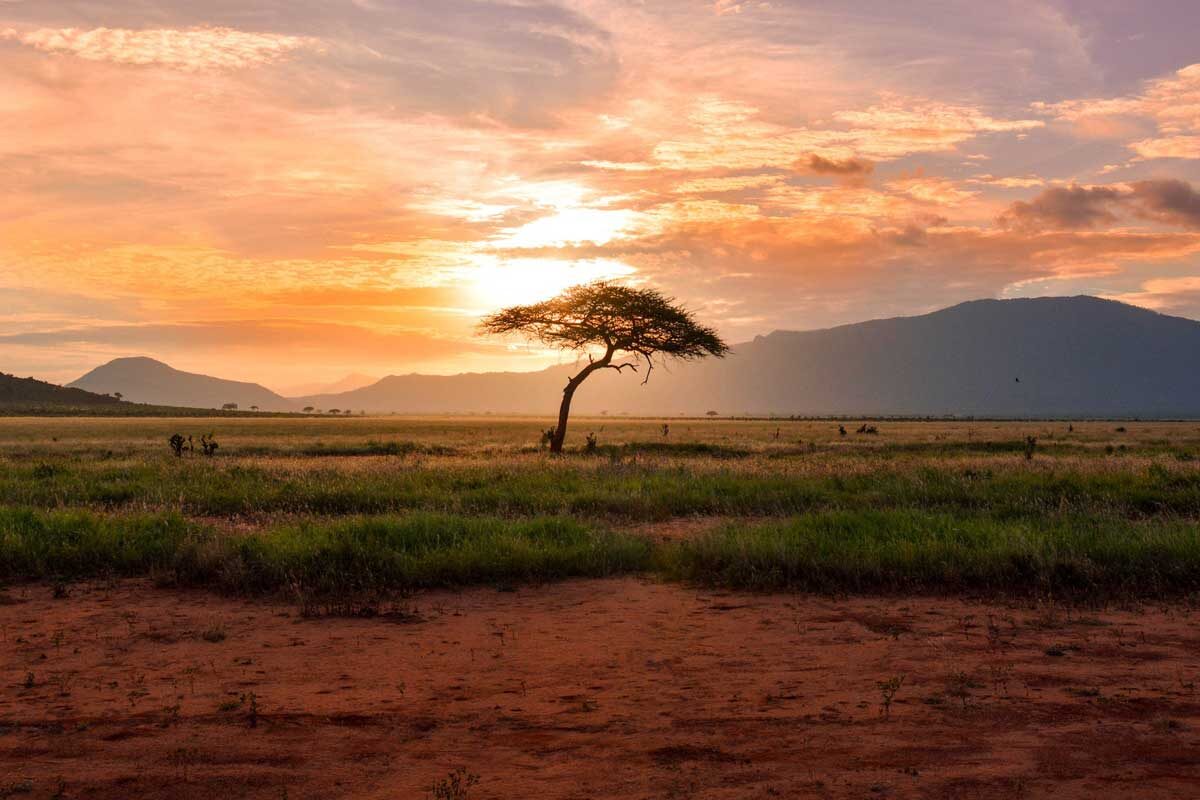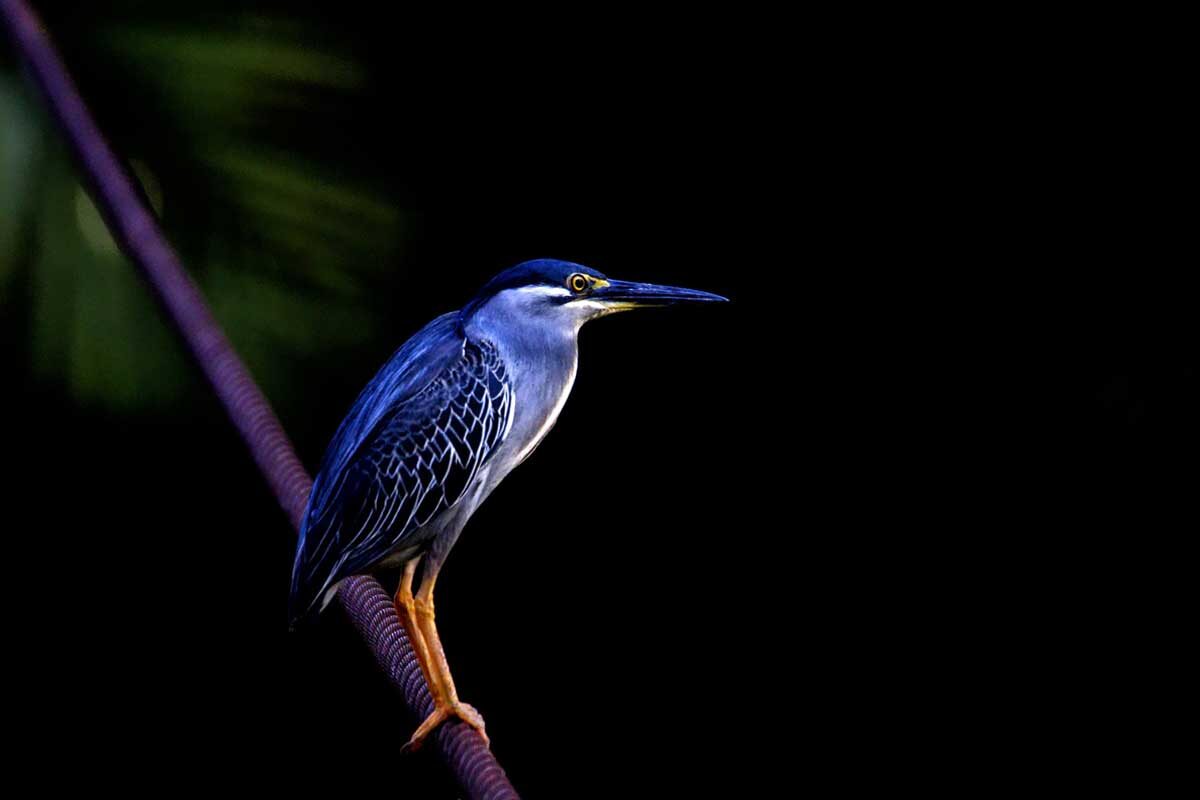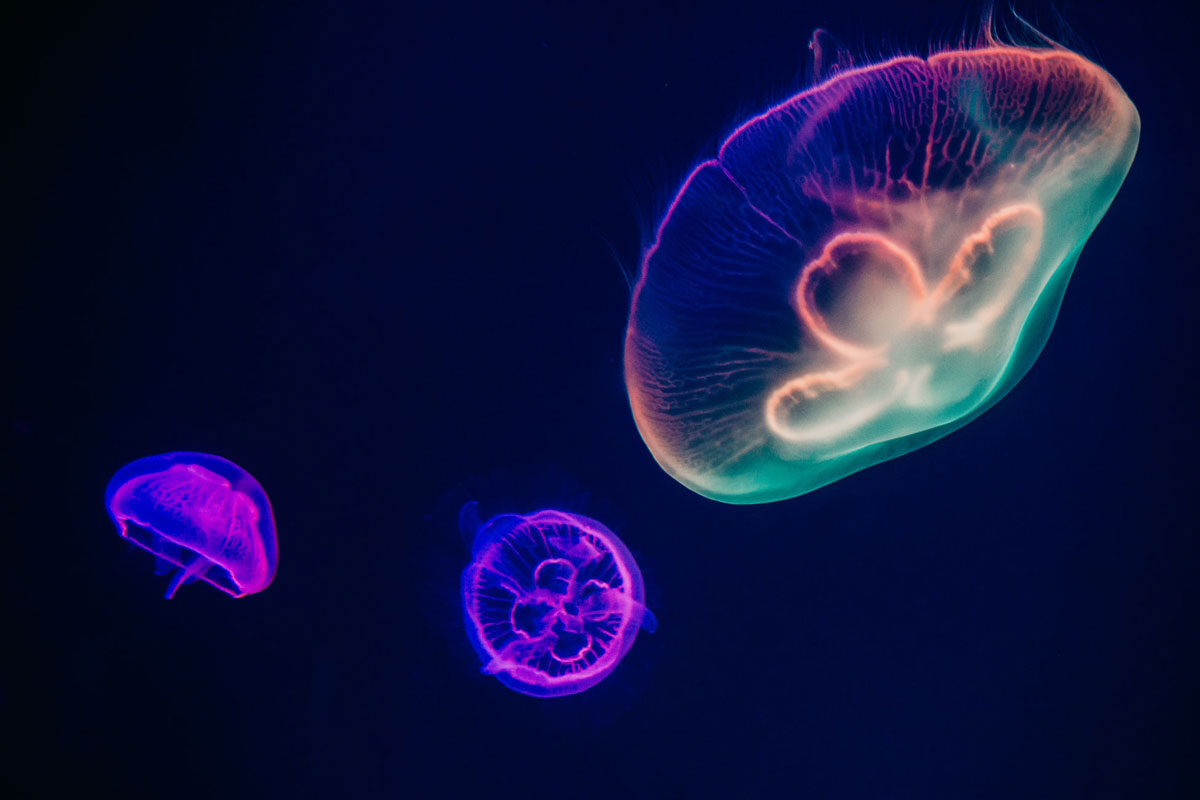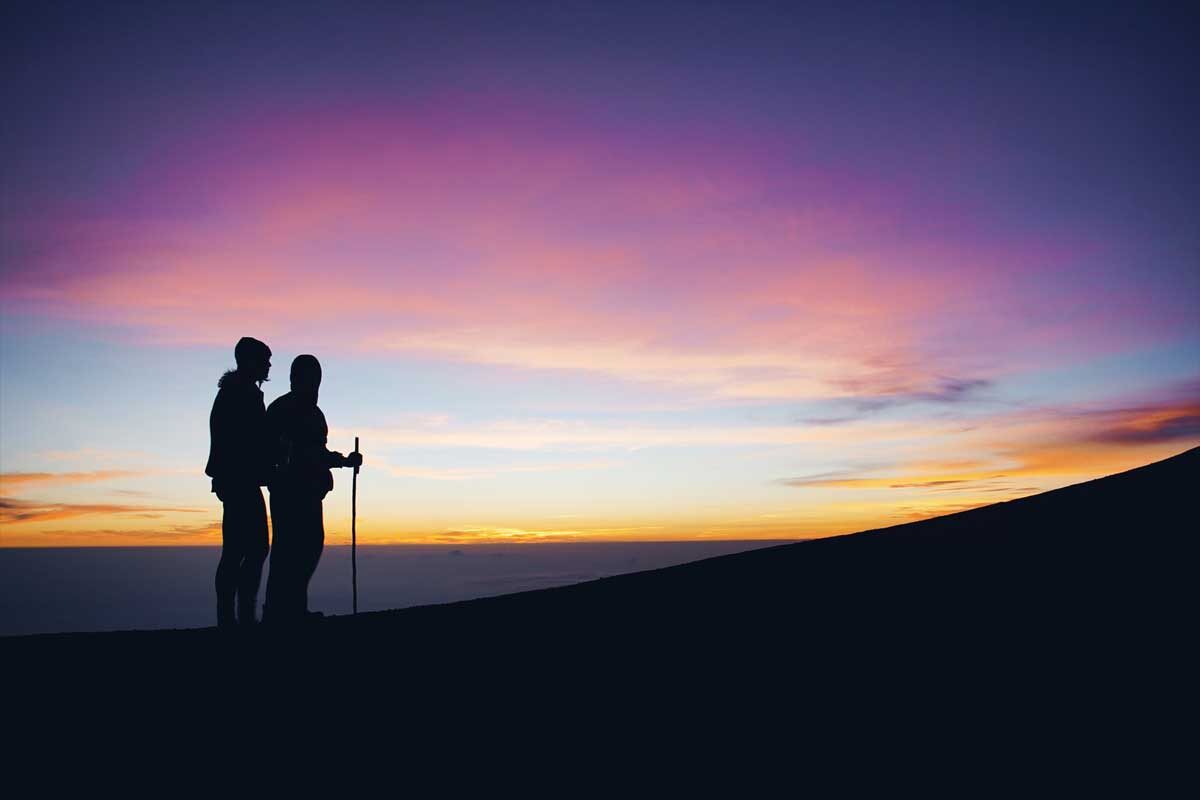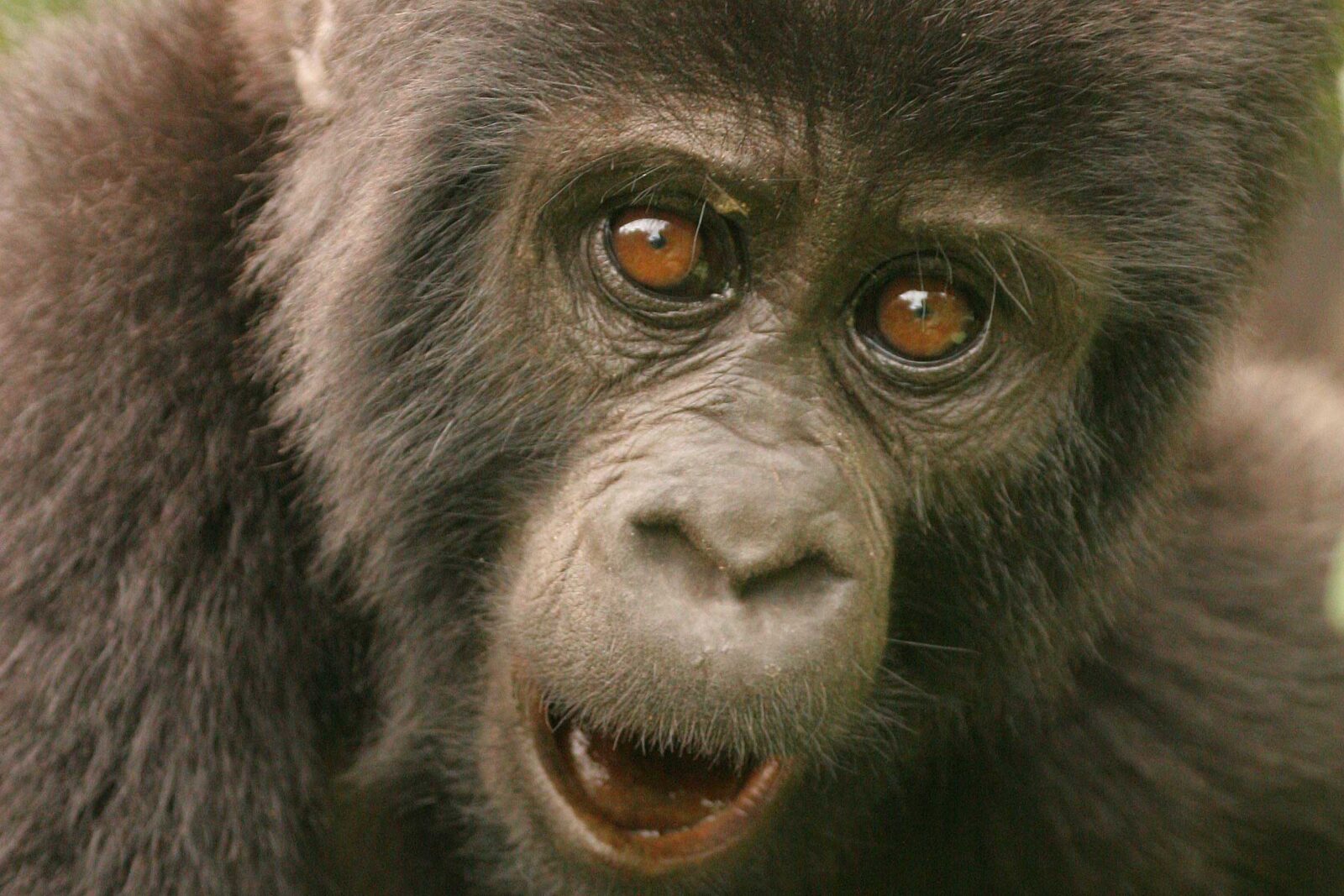
Best of Uganda’s Wildlife
Tour Introduction
Uganda has an incredible natural diversity for a country its size. We designed this two week private journey to reveal the pick of natural attractions around the country. Expect to see typical East African fauna including large numbers of savannah elephant, hippo, lion, Rothschild’s giraffe plus more unusual species such as Ugandan kob, forest elephant, white rhino and tree-climbing lion. Two of Uganda’s star primate attractions are likely to be encountered, mountain gorillas and chimpanzees, plus a host of smaller monkeys including two species of colobus monkey, L’Hoest’s monkey, red-tailed monkey and the rare savanna-dwelling patas monkey (the world’s fastest). Birding highlights include shoebill stork, flamingo, roller, 14 species of bee-eater, cranes, storks, a wide range of raptors and 13 species of kingfisher. In addition to the spectacular wildlife, prepare to see stunning geography including the Nile winding through the landscape before plummeting down the spectacular Murchison Falls. Marvel at grand river canyons, extensive wetlands, beautiful volcanic crater lakes and the impressive African Great Lakes of Victoria, Albert and Edward. With luck you might catch sight of the snow-capped Mountains of the Moon in the far distance. With the benefit of a private guide throughout and so much wildlife and natural beauty, this tailor-made journey will be an unforgettable African experience to rival the best.
Full Itinerary
Arrive Entebbe. Met on arrival and transfer to your hotel.
Staying at The Boma. Includes No Meals.
Pickup by private safari guide with specially equipped 4WD Land-cruiser with popup roof, charging sockets, WiFi and a fridge stocked with complimentary fruit, snacks and soft drinks. Drive (approx. 4hrs) to the Ziwa Rhino Sanctuary. Setup to re-establish a wild rhino population since poaching in the 1970s decimated the last of the natural population, Ziwa now has a growing population of 22 white rhinos within its 7,000 hectare reserve. Other inhabitants include deer, monkeys and over 300 species of bird. Afternoon walking safari to spot white rhino. Night walk to see some of the nocturnal wildlife of the area.
Staying at Amuka Safari Lodge. Includes All Meals.
A morning visit to the Lugogo Wetlands for birdwatching on foot and by boat. The reserve protects over 350 avian species including many raptors, turacos, a range of kingfishers, barbets and woodpeckers and is a prime location for shoebill stork. Return to the lodge for lunch then venture out to track white rhino on foot. Other sightings might include deer, further bird species and the local long-horned Ankole cows.
Staying at Amuka Safari Lodge. Includes All Meals.
Morning drive (approx. 3.5hrs) to Murchison Falls National Park. Check-in to your lodge and enjoy an afternoon boat trip to Murchison Falls, following the Victoria Nile as it flows through the park. As well large numbers of water birds, the river attracts plenty of game which comes to the river to drink and bathe including hippo, elephant, buffalo and crocodile. You will continue up the river to the spectacular Murchison Falls where the river hurtles down a seven-metre chasm. Disembark for a fairly steep walk to the top of the falls, observing various cascades along the way. Return to the lodge in the evening.
Staying at Bakers Lodge. Includes All Meals.
Enjoy a full day in Murchison Falls National Park. At 3,893 square kilometres in size, this is Uganda’s largest national park and dominated by the Nile running roughly east to west and dividing the park in two. Here you can see large numbers of Rothschild's giraffe, elephant and buffalo. Specialities of the park include the Jackson’s hartebeest, the tiny oribi antelope and the Uganda kob – an antelope which forms large herds. Lion are seen quite regularly but leopard and spotted hyena less so. Primates include olive baboon, blue and red-tailed monkeys, black-and-white colobus plus the rare savanna-dwelling patas monkey. As well as waterbirds such as shoebill stork, goliath heron and grey crowned crane, there are many savannah species including the Abyssinian ground hornbill, Senegal thick-knee and Northern carmine bee-eater. Morning boat trip to the Nile delta to look for shoebills and other wildlife. Return to the lodge for lunch, then enjoy a sunset game drive.
Staying at Bakers Lodge. Includes All Meals.
Depart early for the long drive to Kibale (approx. 8 hrs). Begin on quiet dirt roads through the farmland around Murchison Falls, then continue on paved roads towards Kibale. Check in to your hotel and spend the rest of the day at leisure.
Staying at Ndali Lodge. Includes All Meals.
Depart before dawn and head to the Kibale Forest National Park headquarters and check-in for a morning chimpanzee trek. Bordering Queen Elizabeth National park to the south, Kibale Forest National Park is Uganda’s largest expanse of intact forest. It is home to over 350 species of tree, 375 species of bird and 70 species of mammal including forest elephant, red and blue duikers, bushbuck, sitatungas, bush pig, giant forest hog, common warthog, buffalo, leopard and even the occasional lion. Thirteen species of primate are found there, including the Uganda mangabey, Ugandan red colobus, L'Hoest's monkey, black-and-white colobus and blue monkey. Possibly Africa’s best chimpanzee trekking can be enjoyed there, with over 120 individuals within the main habituated group, divided into various sub-groups. After a short briefing, you will be split into groups of eight and spend the morning tracking chimpanzees with an armed ranger who will know where they were last seen. If you are lucky, the group will be vocalising so you can follow the distinctive whoops and calls to find it. If not, the ranger will use his tracking skills to follow a trail of broken vegetation and dropped fruit leading to the group. This can sometimes take some time and involve much walking through some thick forest. Once found, though, you can enjoy an unforgettable hour witnessing fascinating social interactions and other behaviour before returning to park HQ and your lodge for lunch. Please Note: you will need to keep a safe distance from the chimpanzees at all times and you will not be able to partake at all if you are feeling ill.
In the afternoon, enjoy a scenic walk in the Bigodi Wetlands for some of the area’s smaller primates plus rich birdlife. Pass along a series of trails and boardwalks through farmland, forest and extensive areas of papyrus. The wildlife is dominated by birds including great blue turaco, papyrus gonolek, hornbills, waxbills, weavers, cuckoo, flycatchers and a number of kingfisher species. There are eight primate species including black and white colobus, red colobus, mangabey, red tail, vervet, and L’Hoest monkeys.
Staying at Ndali Lodge. Includes All Meals.
Check out and drive (approx. 60 minutes) to the northern border of Queen Elizabeth National Park and enjoy an introductory game drive to your lodge. Stop to see the beautiful crater lakes that punctuate the park, the dramatic Kyambura Gorge and explore the flat, open grasslands looking for lion and buffalo. Lunch at your lodge followed by an afternoon’s game drive in the park.
Staying at Mweya Safari Lodge. Includes All Meals.
Enjoy a morning shared boat cruise on the Kazinga Channel. The channel connects Lake George and Lake Edward and attracts a lot of big game. Expect hippo, crocodile, elephant and buffalo aplenty. The banks are home to bee-eaters, kingfishers and other birdlife – there are over 600 species found in the area.
Continue south (with packed lunch) through the Ishasha sector of Queen Elizabeth National Park, generally more green, forested and less-visited than the northern part. There are healthy numbers of elephant, buffalo, hippo and Uganda kob as well as black and white colobus monkey and other primates. It is also excellent for birding with grey crowned crane, nerina trogon and black bee-eater being particular highlights. However, Ishasha’s most famous inhabitants are the tree climbing lions. These are quite often sighted, especially in the mid-morning and mid-afternoon when they climb low-hanging fig trees in search of a cooling breeze. There is no off-road driving in the park, so some sightings can be distant. Arrive back at your lodge in time for dinner.
Staying at Ishasha Wilderness Camp. Includes All Meals.
Depart with a picnic lunch for a morning game drive in Ishasha seeking tree-climbing lions and other wildlife. Continue south (approx. 2 hours) to the Buhoma section of the Bwindi Impenetrable Forest National Park. Rest of day is free to relax and acclimatise.
Staying at Buhoma Lodge. Includes All Meals.
Morning gorilla tracking in the Bwindi Impenetrable Forest National Park. This is one of the oldest and most biologically diverse forests in Africa, containing over 400 species of plant, 350 species of bird and 120 species of mammal including forest elephant, antelopes and baboons. However, there is one mammal everyone comes here to see: the mountain gorilla. Bwindi holds the world’s largest surviving population of the great apes which are dispersed in several family groups, eleven having been habituated to accept human visits.
There are four main starting points for the Bwindi trekking. You will begin at Buhoma where there are three main groups: Rushegura, Habinyanja and Mubare (the first group to be habituated in Uganda). Arrive at the park by 8am to be registered and shown a video about gorilla conservation and the rules of tracking. You will be assigned to a group and begin your trek. Groups will be allocated according to participants’ fitness and the approximate location of the gorillas.
There is usually a short drive to the trek starting point where you will have a chance to prepare yourself and hire a porter – porters are not essential but we recommend one. Not only do they carry your bags but also lend a hand (literally) on steeper sections of the trip, and the fee of around $20 provides much needed income for them and their families.
Treks typically start with a steep walk up mountain paths into the forest, usually taking one to three hours depending on the route and overall fitness of the party. Then it’s a scramble through the vegetation to your gorilla group, usually across flatter terrain. You will often be hacking through very dense foliage (it’s not called “impenetrable” for nothing) so it’s best to have both hands free and wear thick gardening gloves for the thorns and stinging plants.
When you finally reach your gorilla group (often after another hour or so) you will have a chance to rest, collect your thoughts (and your camera) before walking the final few metres to the great apes. You will then be given an hour to observe and photograph the group. The time will fly by so make sure you have plenty of space on your memory card, a fully charged battery and your flash switched off as no flash photography is allowed. You are expected to keep a respectful distance or around seven metres from the animals. Of course, you should not even begin the trek if suffering from any sort of illness in order to protect the health of the gorillas.
After an unforgettable hour you will retrace your steps to the vehicle and return to the lodge. The total length of the trek can be anything from three to eight hours depending on the group tracked and the fitness of your party. Bring plenty of water, snacks, sun cream, hat and raingear with you.
After lunch there will be a free afternoon to rest and relax or, if you have the energy, visit a nearby Batwa (pygmy) tribe or enjoy a forest walk to spot some of the other wildlife found in Bwindi.
Staying at Buhoma Lodge. Includes All Meals.
Morning departure from the lodge for the drive (approx. 6 hours) to Lake Mburo National Park. Enjoy lunch at your new lodge followed by a late afternoon game drive with a spotlight night drive on the return. The small, overlooked Lake Mburo National Park lacks some of the wow factor of bigger parks as it contains no lion or elephant. However, the lack of large game allows for walking, riding and even cycling through the park. There are a number of species that are difficult to see elsewhere in Uganda including zebra, eland and impala. Lake Mburo is also good for leopard and hyena, with sightings mainly at night. Avian highlights include African fish eagle, African finfoot, white-backed heron and large numbers of malachite kingfishers.
Staying at Mihingo Lodge. Includes All Meals.
Early morning game drive in Lake Mburo National Park – you could upgrade to a walking or riding safari for a small additional charge. Have breakfast at the lodge then drive to the Mabamba Wetland for a final boat trip in search of shoebills and other birdlife. Continue to Entebbe. Visit a nearby restaurant for dinner (included) then take an evening flight home.
Includes All Meals.
Tour Accommodation
Overview
Located only around 10 minutes’ drive from the airport, the Boma Hotel is nestled in a quiet suburb of Entebbe with pleasant gardens and a swimming pool. Each of the eleven rooms is decorated in a colonial style and comes complete with en suite facilities. The rooms combine modern comforts with the charm and character of the original 1940s homestead.
It is also 10 minutes from the Uganda Wildlife Education Centre (UWEC) and the pier from where boats depart for the Ngamba Island Chimpanzee Sanctuary.
Swimming Pool
Air Conditioning
Rooms
Facilities
Swimming pool, free high speed internet (WiFi), room service, bar/lounge, restaurant, airport transportation, laundry service, minibar, outdoor pool and wheelchair access.
Local Wildlife
The hotel has lovely gardens which attract plenty of birds and butterflies.
Optional Activities
Visits to nearby Lake Victoria, birdwatching, bicycle hire, golf, visits to Ngamba Island Chimpanzee Sanctuary and the Uganda Wildlife Education Centre.
Overview
The most comfortable accommodation in the Ziwa Rhino Sanctuary, Amuka has ten stone-built chalets with corrugated iron roofs, stand-up fans, private bathrooms and verandas. There is a central swimming pool, seating area, bar and restaurant serving a mix of western and local dishes.
Each of the rooms is reliant on solar heaters for the hot water.
Swimming Pool
Air Conditioning
Rooms
Facilities
Swimming pool, restaurant, bar and lounge, free internet, wheelchair access.
Local Wildlife
White rhinoceros and a wide array of birds and wildlife.
Optional Activities
Rhino tracking on foot, shoebill canoe safaris and birding tours, night walks and guided nature walks
Overview
Baker’s Lodge offers luxurious accommodation on the south bank of the River Nile, Murchison Falls National Park.
Taking its name from Samuel Baker, an English explorer who first discovered Murchison Falls, and located on the south bank of the Victoria Nile, this beautiful safari lodge has just eight spacious thatched cottages with river views comfortable seating areas inside and out, ceiling fans and large, open plan bathrooms. Inside, there is a huge bedroom with double or twin beds, bedside tables, solar-powered lighting, mosquito nets, a couple of explorer’s chests, a writing desk and chair, a safe, and well-appointed en-suite facilities comprising flush toilet, twin washbasins, shower and bathtub. There’s free Wi-Fi too.
There is a large bar, lounge and restaurant area with alfresco dining options by the river. The pleasant swimming pool is set back from the main lodge, affording a good deal of privacy. The grounds boast a fire-pit, perfect for getting to know your fellow travellers and exchanging safari stories.
You can take boat trips straight from the lodge and hippos often graze the lawns after dark. For game drives, you need to first take the ferry across the river to the northern part of the park.
Swimming Pool
Air Conditioning
Rooms
Facilities
Baker’s Lodge has a restaurant, bar, fire-pit, swimming pool, conference facilities, a comfy lounge, open plan en-suite bathrooms with solar heated showers and bathtubs.
Local Wildlife
The views onto the river are vast and magnificent with islands hosting nesting egret birds, elephants bathing and pods of hippos regularly viewed.
Optional Activities
Exhilarating river cruises, game drives, birdwatching, fishing, chimpanzee tracking, hot air ballooning.
Overview
Ndali is a rustic, intimate lodge owned and managed by third generation expats Aubrey and Clare Price. The lodge has a homely colonial feel while still feeling very informal. Built of local stone and thatch, the eight luxury bandas are perched on a hill and offer stunning views over a natural crater lake.
The rooms are nestled among beautiful, bird-filled gardens and walks around the crater lake often reveal a multitude of birds including the great blue turaco. The swimming pool overlooks miles of rolling hills and is a great spot for a welcome sundowner. A full English breakfast is served on the veranda overlooking the lake, augmented by freshly squeezed passion fruit juice and homemade bread with wild honey.
Three of Uganda’s national parks are within easy driving distance from Ndali Lodge: as well as Kibale, these include the World Heritage-listed Rwenzori Mountains National Park and Uganda’s most famous, the Queen Elizabeth National Park.
Swimming Pool
Air Conditioning
Rooms
Facilities
A swimming pool, restaurant, laundry service, bar and lounge, free internet, hot and cold running water, lighting by candle or storm lantern.
Local Wildlife
Close by is the Bigodi Wetlands Sanctuary, a community-based conservation project and part of Kibale Forest National Park, which protects a variety of monkeys and other mammals and rare birds such as the white-winged warbler, white-collared oliveback and papyrus gonolek. Other species frequently spotted are the African marsh harrier, African harrier-hawk, grey parrot, black-billed turaco, yellow-billed barbet and white-breasted negrofinch. Below the lodge on the lake stands a sturdy jetty in a most tranquil and secluded setting, much frequented by five different species of kingfisher.
Optional Activities
Ndali provides local guides for walks around its 1,000 acre farm or to nearby Muhoma Falls. Guests can swim in the lake, soak up the sun or simply get away from it all. There is an inflatable two-man kayak that can be used for spotting birds and other wildlife by the lakeshore.
Overview
The Lodge is located on a peninsula in the heart of Queen Elizabeth National Park overlooking the Kazinga Channel offering great views of the waterway and its associated wildlife. With 32 standard rooms, 12 deluxe rooms, 2 suites, 2 Family Cottages, 2 Luxury Tents, 2 Standard Tents, Presidential Cottage and Queens Cottage, the property is large and feels more like a hotel than an intimate lodge. However, that means there are many creature comforts provided such as an infinity swimming pool and restaurant with large outside deck, both having great views of the channel and national park beyond. The lodge’s pontoon is the starting point for most of the channel cruises.
Enjoy a cocktail in the infinity swimming pool or at the Tembo bar while you train your binoculars across the channel to identify the different wild animals cooling off in the waters below.
Just 100 metres from the lodge gate, the Uganda wildlife Authority Information Centre contains some excellent exhibits describing the national park and the Great Rift Valley environment.
Swimming Pool
Air Conditioning
Rooms
Facilities
A stunning infinity pool, restaurant with indoor and outdoor seating, Tembo bar, sauna, laundry service, air conditioning, business centre, fitness centre, gift shop, conference facilities, information centre.
Local Wildlife
The astonishing wildlife biodiversity in Queen Elizabeth National Park includes 95 mammal species and 612 different birds. The Kazinga Channel alone is said to contain the world’s largest concentration of hippos. Other wildlife includes lion, warthogs, buffalo, rare aquatic sitatunga antelope, giant forest hog, Uganda kob, topi, waterbuck, elephant and leopard.
Optional Activities
Safari drives, chimpanzee tracking, water safaris, birding, bush breakfasts.
Overview
A small, delightful tented lodge situated by the Ntungwe River in a quiet area of the Southern Ishasha section of Queen Elizabeth National Park. Each of the camp’s ten spacious, canvas tented rooms has a private veranda, large bed with mosquito net, hot ‘bush’ shower, running water for hand-basins and a flushing ‘eco-friendly’ toilet. The large thatched central area contains an outdoor fire, bar and dining area, with alfresco dinners and bush breakfasts being popular options. Much birdlife and monkeys can be observed in the trees around the lodge, elephants occasionally wander through and hippos emerge to graze the lawns at night.
Swimming Pool
Air Conditioning
Rooms
Facilities
Communal dining area, bar, lounge, laundry service.
Local Wildlife
The wilderness surrounding the camp is breathtakingly beautiful and unspoilt, inhabited by prolific wildlife including elephant, buffalo, black-and-white colobus monkey and tree-climbing lions. Animals often move freely through Ishasha Wilderness Camp.
Optional Activities
Game drives in Queen Elizabeth National Park, guided birding and nature walks, Kazinga Channel cruises, chimpanzee tracking in Kyambura Gorge, community visits.
Overview
One of only two lodges situated within the Bwindi Impenetrable Forest National Park, Buhoma Lodge offers the perfect base for your gorilla adventures. Each of the ten chalets is set above the main building to make the best of the forest views. The stone-built and insect-screened chalets have small verandas, comfortable beds and large bathrooms with rain shower (some also have bathtubs). The communal area is very cosy and inviting with a large central fire, small bar and restaurant serving excellent food freshly prepared from local produce.
Buhoma Lodge is a mere five minutes’ walk to the park headquarters from where all activities, mainly gorilla tracking, begin. This makes it an ideal lodge for activities in the northern section of Bwindi Impenetrable National Park.
Solar power is used inside the cottages for lighting, with a central area available for recharging videos and cameras.
Swimming Pool
Air Conditioning
Rooms
Facilities
Bar and restaurant, open air lounge, open fireside, spa treatment room with complimentary massages, and a complimentary laundry and hiking boot cleaning service. Free Wi-Fi internet and recharging facilities are available in the bar. The gift shop has local crafts for sale.
Local Wildlife
As well as in the national park, mountain gorillas can occasionally be found in the lodge grounds.
Optional Activities
Mountain gorilla trekking, Bwindi forest walk, bird watching, butterfly watching, the Batwa cultural experience, Buhoma community village walk, visits to the Batwa Pygmy tribe to learn about their unique culture, massages at the lodge.
Overview
Family-run Mihingo Lodge has a beautiful setting atop a rocky outcrop overlooking Lake Mburo National Park. Each of the 12 tented rooms has a large private deck to make the best of the views. Those at lower levels are close to a salt lick and waterhole which attract a lot of wildlife both day and night.
One of the first to be carbon neutral certified, Mihingo is undoubtedly one of the most environmentally conscious lodges in Uganda. It relies 100% on solar energy and used plenty of reclaimed wood in its construction
Swimming Pool
Air Conditioning
Rooms
Facilities
There is a large infinity pool, bar and restaurant serving delicious meals.
Local Wildlife
Lake Mburo National Park is the best place in Uganda for klipspringers living on rocky outcrops, often seen while at Mihingo Lodge. Plains game like zebra and large herds of impala and eland are found in Lake Mburo National Park but nowhere else in Uganda. Lake Mburo is also home to more common species such as waterbuck, topi, warthog, bushbuck, reedbuck, oribi, vervet monkey, baboon and many types of mongoose. Another mammal special to Mihingo is the bushbaby (or long tailed galago) which comes nearly every night to a platform below the bar area. Mihingo is one of the few places in Africa where this very shy nocturnal primate can be seen close up. The large variety of habitats in Lake Mburo National Park support over 350 bird species including rare yet regularly spotted species like African finfoot and white-backed heron.
Optional Activities
The lodge offers a range of optional activities including horse riding, mountain biking, walking tours and cultural visits.
Route Map
Departure Dates
Travel Information
Are International Flights Included?
No. Please contact us for a quote if required.
Flight Info:
Flights not included.
Best Visited:
May to October
Are you ATOL Registered?
Yes. This means we are legally able to book your international flights in conjunction with your ground arrangements so you can book with us with complete confidence. Read more about our ATOL license here.
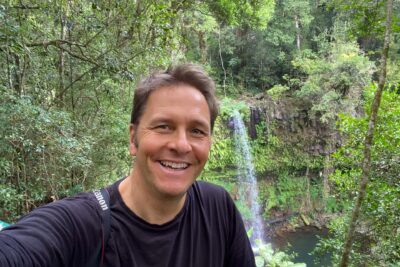
Jonathan Morris
Area Specialist
Instead of returning to Entebbe, you can take a detour south from Bwindi and cross the border into Rwanda. There you can track an entirely different gorilla population and see golden monkeys in Volcanoes National Park after which it’s only a two hour drive to Kigali to catch your flight home. This is a more expensive option (particularly considering the high gorilla permit fees in Rwanda) but it does add another dimension to the trip and cuts down on driving times.
If you have any questions regarding this Tour, please feel free to contact me on +44 (0)1803 866965
Wildlife highlights included seeing a shoebill, we really had to search! Seeing a leopard up close on our night drive, seeing lions out on our own! The abundance and concentration of wildlife in Lake Mburu. And of course the gorillas which was so magical and the chimps.
